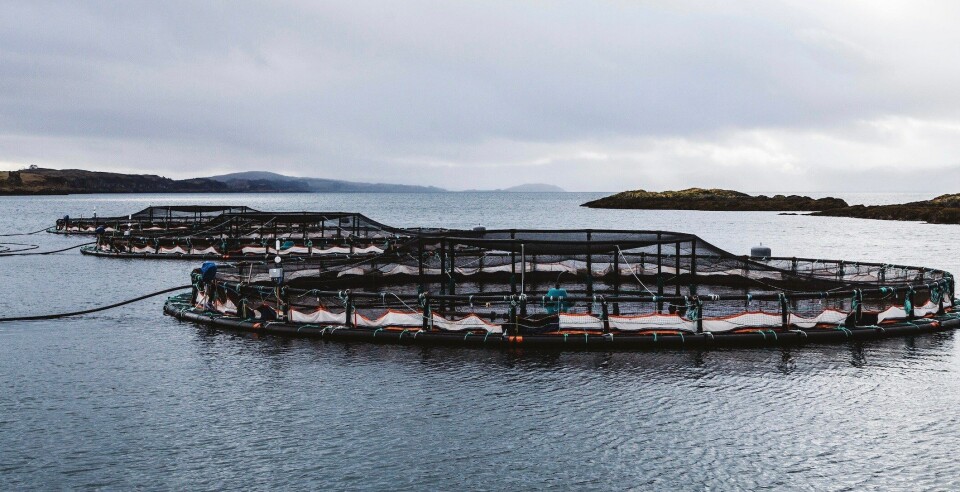
Monitoring plan added to fish farm requirements
The Scottish Government is to introduce environmental monitoring plans as a condition of consents for salmon farms.
The immediate measure is one of several outlined by Rural Economy Secretary Fergus Ewing in his response this week to the inquiry into salmon farming by Holyrood’s Rural Economy and Connectivity (REC) Committee.
“This plan will stipulate that an effective monitoring regime should be put in place in the identified aquaculture farming area and will detail what its key components should be. This will then inform an ongoing process of adaptive management to manage future fish farm applications,” wrote Ewing in the 32-page response.

Range of actions
Ewing, a keen supporter of the aquaculture industry, was responding to a number of recommendations made by the REC Committee to speed up reporting of large-scale mortality events, disease outbreaks and sea lice numbers on farms.
In his introduction, Ewing wrote that before turning to the Committee’s specific recommendations it was worth setting out the range of actions already under way to make improvements in the sustainability of the sector and address concerns.
These included:
- A 10-year Farmed Fish Health Framework begun in May 2018 which has resulted is a wide range of specific work streams, all now fully under way;
- The Salmon Interactions Working Group, established in May 2018, to explore interactions between wild and farmed salmon;
- The publication in November by the Scottish Environment Protection Agency (SEPA) of detailed plans for how it will regulate the sector’s environmental footprint.
“We anticipate that over the next 12 months these processes will allow us to identify whether there is a case for further legislative change, and/or modification in the enforcement regime governing how the aquaculture sector interacts with others,” wrote Ewing.
‘No expansion’
He said the Government agreed with many of the REC Committee’s conclusions, although not in the area of fish mortalities.
In its inquiry report the REC Committee said no expansion should be permitted at sites which report high or significantly increased levels of mortalities, until these are addressed to the satisfaction of the appropriate regulatory bodies.
Ewing said it was “disappointing that in recognising the challenges of mortalities the Committee has not equally recognised the sector’s efforts to reduce the number of incidents and levels over the last 12 months”.
£3.5m fish health projects
He pointed to the £3.5 million the industry and the Scottish Aquaculture Innovation Centre are spending to improve gill health and resilience of farmed salmon – a project announced after the REC Committee had submitted its report.
He added: “It is difficult to see how an ‘acceptable’ level of mortality could be defined nor how that would be appropriate, given the different circumstances in which mortality events occur.”
With reference to the speeding up of reporting, he said mortality reports by the Fish Health Inspectorate would be published monthly in arrears on the Scottish Government website as an interim measure, while web-based and real-time site reporting is considered.
Sharing more sea lice data publically is being considered; in the meantime, information which Marine Scotland holds will be published from March 2019 onwards, monthly in arrears.
Transfer of responsibility
Secondary legislation will also be proposed by ministers to transfer responsibility for controlling discharges of medicines from wellboats from Marine Scotland to SEPA, said Ewing.
The Scottish Salmon Producers’ Organisation said it welcomed the Scottish Government’s continued support for the industry.
Chief executive Julie Hesketh-Laird said: “The Scottish farmed salmon sector already has a world-leading approach to the publication of mortality data. We also report sea lice levels voluntarily but we want to go further and intend to publish this data more quickly to ensure greater transparency.
“The sector is also preparing to move to a tighter action level for the enforcement of measures to combat sea lice.
“However, there are issues we look forward to discussing in greater depth with the Scottish government once we have established the detail of those proposals.”
Read the Scottish Government’s full response to the REC Committee report here.























































